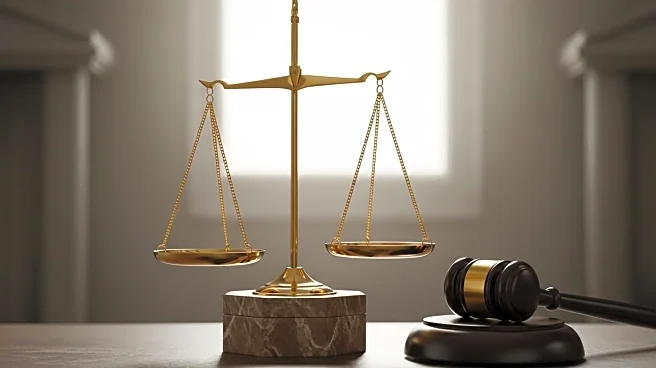What's Happening?
In Washington, D.C., grand juries have recently refused to indict several defendants, challenging the federal government's crime crackdown led by President Trump. This unusual trend has emerged as federal agents and National Guard members have increased their presence in the city. Typically, prosecutors have significant control over grand jury proceedings, presenting evidence that jurors must evaluate to determine probable cause. However, recent refusals to indict suggest a shift in grand jury behavior, possibly indicating skepticism towards the government's actions. Notably, a case involving Sean Charles Dunn, accused of felony assault for throwing a sandwich at a federal officer, was downgraded to a misdemeanor after the grand jury rejected the initial charge.
Why It's Important?
The refusal of grand juries to indict in these cases highlights potential concerns about prosecutorial discretion and the use of federal resources in crime enforcement. This development could impact the justice system's approach to handling cases in Washington, D.C., especially under heightened federal intervention. It raises questions about the balance between law enforcement and civil liberties, as well as the role of grand juries as a check on government power. The situation may influence public perception of the justice system and the effectiveness of President Trump's crime policies.
What's Next?
The ongoing resistance by grand juries may prompt further scrutiny of prosecutorial practices and federal crime policies in Washington, D.C. Stakeholders, including legal experts and civil rights advocates, might call for reforms to ensure fair and balanced justice processes. Additionally, the U.S. Attorney's office may need to reassess its approach to case papering and resource allocation. Public discourse around these issues could lead to broader discussions on the role of federal intervention in local crime enforcement.
Beyond the Headlines
The grand jury rejections could signify deeper societal concerns about the militarization of law enforcement and the potential overreach of federal power. This situation may also reflect broader cultural shifts towards questioning authority and advocating for civil rights. The symbolic resistance, as seen in the case of Sean Charles Dunn, underscores the importance of public sentiment in shaping legal outcomes and policy decisions.










